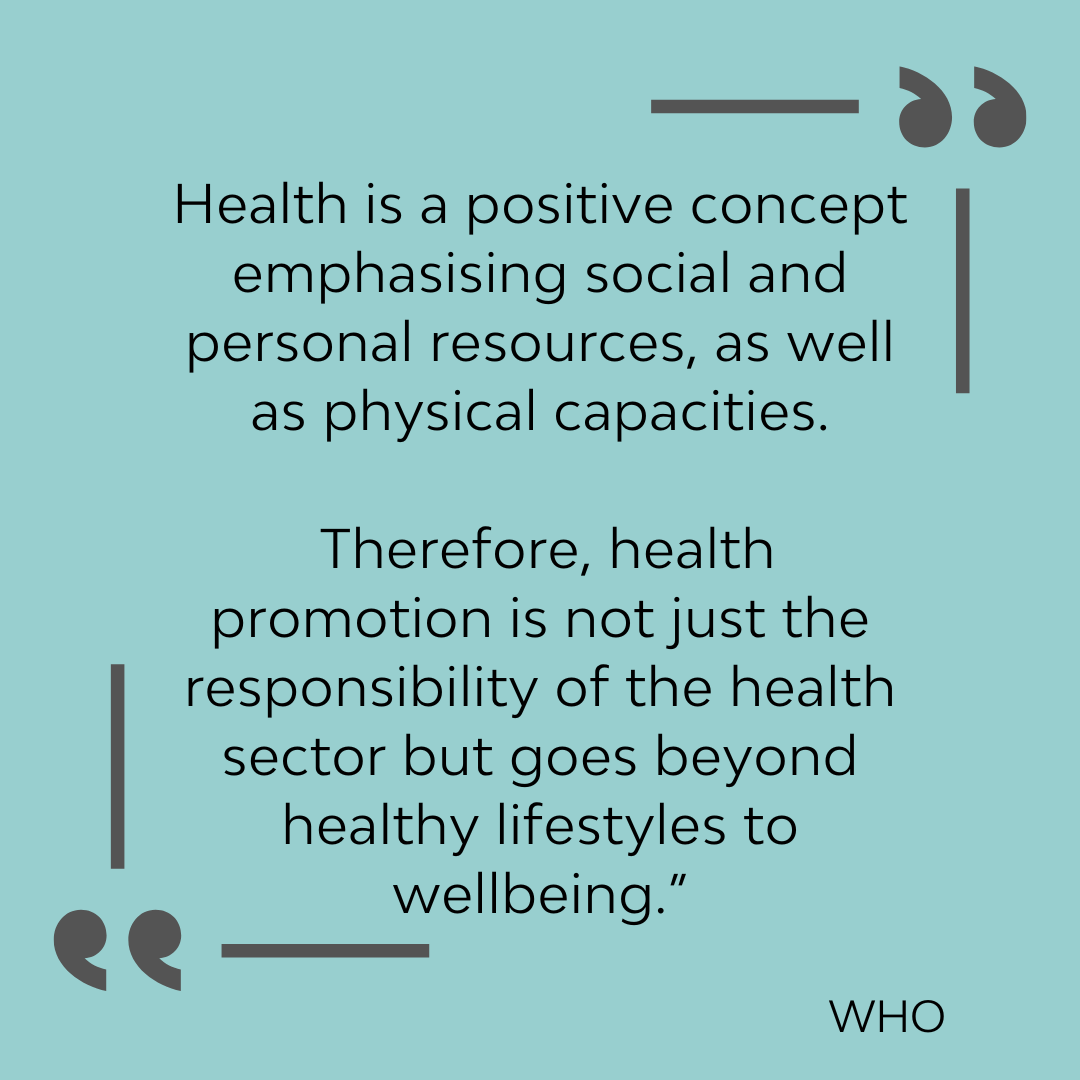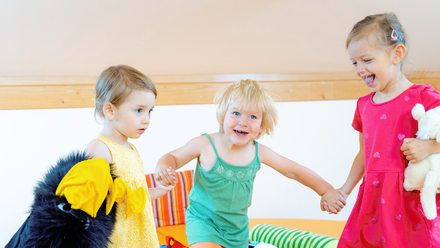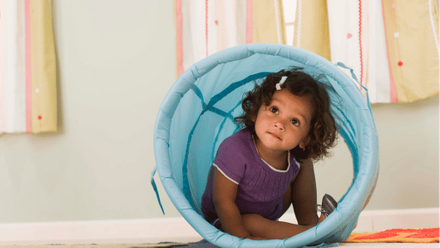Steps to improve children's health and wellbeing
A whole setting approach to healthy body and healthy mind
The whole setting approach derives from the 1986 World Health Organisation (WHO) Ottawa Charter for Health Promotion, which talks about health being promoted in the settings of everyday life: home and community, workplaces, schools and cities. This is still the blueprint for health promotion today and is something we strive for across early education and care.
What is a whole setting approach?
How your setting is organised and how it operates day-to-day is what makes the difference. Children look to adults in their environment as role models, so it is vital that healthy living messages are modelled by staff and that organisational policies and practice support staff wellbeing.
What does health promotion look like in the early years?
The last sentence of the WHO definition of health promotion holds a key message for early education and care professionals:
“Health is a positive concept emphasising social and personal resources, as well as physical capacities. Therefore, health promotion is not just the responsibility of the health sector but goes beyond healthy lifestyles to wellbeing.” This means that positive health and wellbeing, including physical and emotional health, is the responsibility of multiple agencies, all working together to ensure safety and security for the children in our care and community.

Create supportive environments
When children come into an early education and care setting, the whole environment should support healthy eating and physical activity, for example:
-
By providing a variety of healthy foods to encourage healthy lifestyle choices in diet
-
Utilising physical challenge both in indoor and outdoor activity areas.
-
By supporting staff themselves to stay healthy and understand the importance of work-life balance, set out healthy lifestyles in policies and ensure these are modelled by staff for children to see in action.
Strengthen community action
Early education and care professionals should work to build strong alliances with parents and people in the wider community. Through working in partnership, these stakeholders can positively influence the health of others and draw on the expertise of community groups to bring benefits back into the setting.
Examples might include:
-
Linking with residential care settings to encourage inter-generational experiences between young children and older people.
-
Working with a local allotment group to engage children in growing and tending to vegetables.
Develop personal skills
Children and babies learn healthy behaviours through the model set by adults all around them. Practitioners can support parents and carers by providing information and education for health and opportunities for enhancing their life skills. Developing personal skills also includes enabling individuals to assess their own physical, social and mental health needs and to make changes that positively impacts on their health.
Promoting health and wellbeing is central to our role as early years professionals and this means not just helping individuals to change their behaviours and lifestyles but also understanding the complex factors that might influence their ability to make changes.
And remember that promoting health and wellbeing is not just down to the individual – we need to create the conditions where everyone’s wellbeing is a priority. We do not have to be health professionals to make a difference and to promote healthy choices for all!





